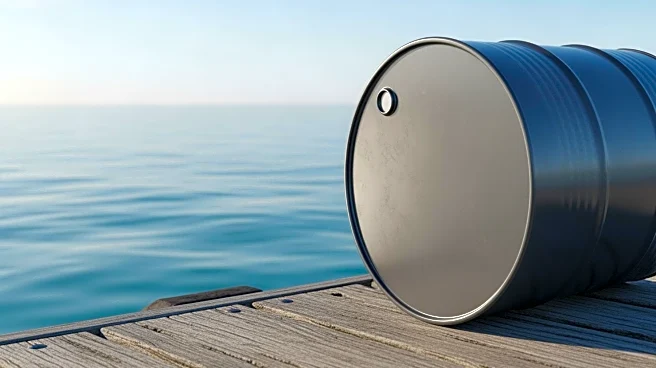Rapid Read • 8 min read
The krill fishery near Antarctica has been shut down earlier than scheduled after the seasonal catch limit was exceeded for the first time. This decision was made by the Commission for the Conservation of Antarctic Marine Living Resources (CCAMLR), following a record surge in krill catch. The 2024-25 fishing season, which was supposed to last until December, was closed after reaching the 620,000 metric ton limit. The closure comes amid a lapse in the longstanding conservation framework, which failed to implement a new management plan to regulate fishing areas and create a reserve along the Antarctic Peninsula. This lapse allowed industrial trawlers to fish unrestrictedly, impacting smaller habitats crucial for whales, penguins, and seals. The krill catch in one area was nearly 60% higher than the previous season, highlighting the increased pressure on krill stocks due to advances in fishing technology, climate change, and rising demand for krill oil.
AD
The early closure of the krill fishery underscores the growing tension between human activities and marine conservation. Krill play a critical role in marine ecosystems and are essential for the diet of many marine species, including whales. They also contribute significantly to carbon sequestration, helping mitigate climate change by removing 20 million tons of carbon from the atmosphere annually. The increased krill catch threatens these ecological functions and highlights the need for effective management strategies to balance commercial interests with environmental sustainability. The situation also reflects broader challenges in international cooperation on environmental issues, as key stakeholders like the U.S., Russia, and China failed to agree on a new conservation plan.
The early closure of the krill fishery may prompt renewed discussions among international stakeholders to establish a more robust management framework. This could involve setting stricter catch limits, designating protected areas, and enhancing monitoring of fishing activities. Environmental groups and researchers are likely to advocate for stronger conservation measures to protect krill populations and the broader marine ecosystem. The situation may also lead to increased scrutiny of the fishing industry's practices and their environmental impact, potentially influencing future policy decisions.
The krill fishery closure highlights the complex interplay between economic interests and environmental conservation. It raises ethical questions about the sustainability of exploiting natural resources and the responsibility of nations to protect global ecosystems. The incident may also drive innovation in sustainable fishing practices and technologies, as well as increased public awareness and advocacy for marine conservation.
AD
More Stories You Might Enjoy










